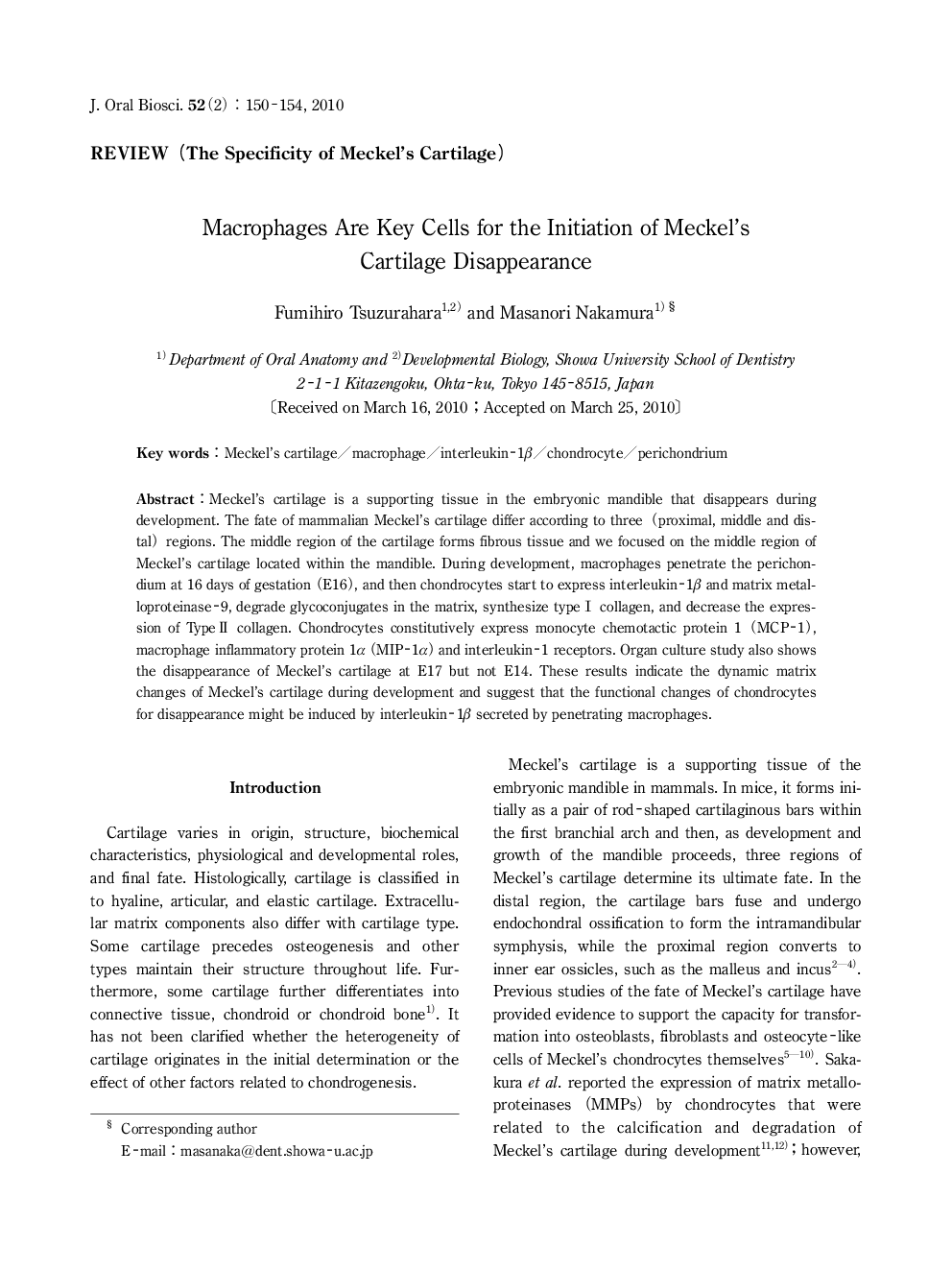| Article ID | Journal | Published Year | Pages | File Type |
|---|---|---|---|---|
| 2776979 | Journal of Oral Biosciences | 2010 | 5 Pages |
Meckel's cartilage is a supporting tissue in the embryonic mandible that disappears during development. The fate of mammalian Meckel's cartilage differ according to three (proximal, middle and distal) regions. The middle region of the cartilage forms fibrous tissue and we focused on the middle region of Meckel's cartilage located within the mandible. During development, macrophages penetrate the perichondium at 16 days of gestation (E16), and then chondrocytes start to express interleukin-1β and matrix metalloproteinase-9, degrade glycoconjugates in the matrix, synthesize type I collagen, and decrease the expression of Type II collagen. Chondrocytes constitutively express monocyte chemotactic protein 1 (MCP-1), macrophage inflammatory protein 1α (MIP-1α) and interleukin-1 receptors. Organ culture study also shows the disappearance of Meckel's cartilage at E17 but not E14. These results indicate the dynamic matrix changes of Meckel's cartilage during development and suggest that the functional changes of chondrocytes for disappearance might be induced by interleukin-1β secreted by penetrating macrophages.
